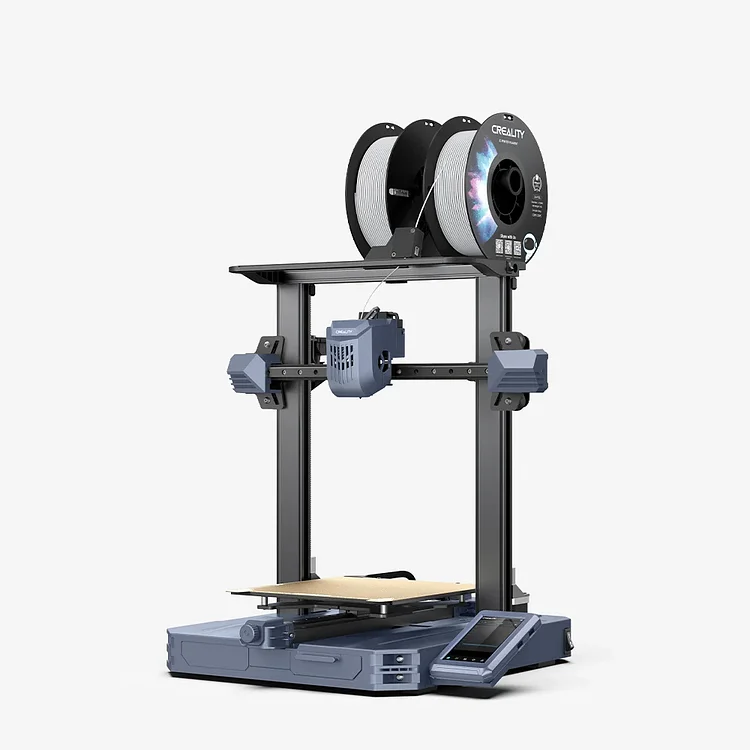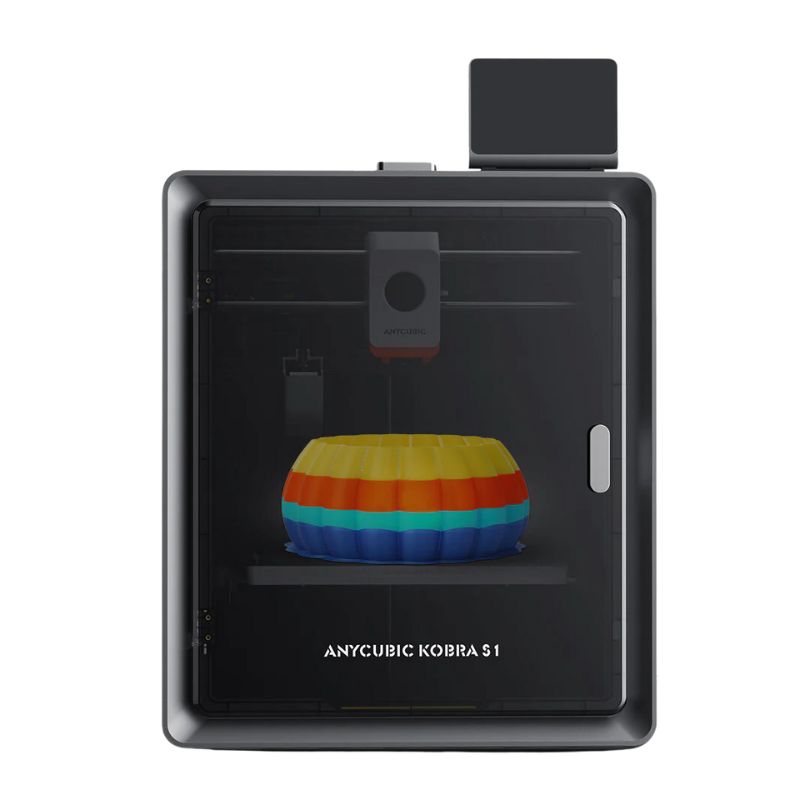Compare CR10 SE vs Kobra S1 Combo
Comparison between the best 3D printers
Choose the best 3D printer at the best price. The cheapest 3D printers are here.
Buy a 3D printer here with 3D Fila.
 |
 |
|
| Model | CR10 SE |
Kobra S1 Combo[BUY Kobra S1 Combo] |
| Printing Material | Filament | Filament |
| Buy Filament for Creality CR10 SE | Buy Filament forAnycubic Kobra S1 Combo | |
| Estimated price | $386,00 | $599,00 |
| Manufacturer | Creality | Anycubic |
| Release Year | 2023 | 2025 |
| Print Volume [mm] | 220x220x265 | 250x250x250 |
| Printer Size [mm] | 490x470x625 | 400x410x490 |
| Weight [kg] | 6,9 | 18 |
| Power Loss Recovery | NO | YES |
| Enclosed printer | NO | YES |
| Bed Leveling | Automatic | |
| Filament End Sensor | NO | YES |
| Bed type | Heated | |
| Power supply system | Direct Drive | Direct Drive |
| Standard nozzle | 0,4 | 0,4 |
| Maximum Nozzle Temperature [°C] | 300 | 320 |
| Maximum Bed Temperature [°C] | 110 | 120 |
| Maximum printing speed [mm/s] | 600 | 600 |
| Filament holder | YES | YES |
| Camera for supervision | YES | YES |
| Recommended filaments | PLA, PETG, PET, TPU, PA Wood, ABS, ASA, PA, PLA-CF | PLA, PETG, TPU[1], ABS, ASA |
| Recommended slicers | Creality Print, Cura, Simplify3D, PrusaSlicer, Orca Slice | Anycubic Slicer Next, Orca Slicer |
| Maximum Resolution [mm] | 0,1 | 0,01 |
| Processor | ||
| Display | Touchscreen 4,3'' | |
| Power Supply | ||
| Connectivity | USB, Wifi | USB, Wifi |
| Operating systems | Windows, Linux, Macbook | Windows, Linux e Macbook |
| Date of registration in the system | 2024-07-02 | 2025-02-25 |
| Release date | 2023 | 2025 |
| Extra features | The Creality CR10 SE stands out for its printing speed of up to 600 mm/s, easy and intuitive assembly, direct extruder with double gears, hotend with hardened steel nozzle and ceramic heater, automatic leveling with CR-Touch and pressure sensor, and use of Creality OS firmware based on Klipper, with automatic input shaping calibration. It also includes Wi-Fi connectivity, a filament out-of-stock sensor and a robust structure with linear rails on the X and Y axes. | The Anycubic Kobra S1 Combo is a fully enclosed CoreXY 3D printer with speeds up to 600mm/s and 20,000mm/s² acceleration. It features a 320°C hotend, native multicolor printing (4 to 8 colors with ACE Pro), and active filament drying. Equipped with LeviQ 3.0 auto-leveling, camera monitoring, AI failure detection, carbon filtration, and a 4.3 touchscreen, it ensures high-quality, efficient, and reliable 3D printing. |
| Support for multiple colors and materials (AMS and CFS) | NO | YES |
Notes * |
||
| Cost-benefit | 7 / 10 | 7 / 10 |
| Hardware | 2.1 / 10 | 7.2 / 10 |
| Tela | . | . |
| Print volume | 3 / 10 | 3 / 10 |
| Performance | 5 / 10 | 5 / 10 |
| [BUY Kobra S1 Combo] |
Conclusion |
| In comparing the CR10 SE and the Kobra S1 Combo, both 3D printers impress with unique features suited to different printing needs. The CR10 SE, priced lower, offers a commendable print speed of 600 mm/s, an intuitive assembly process, and basic features that make it a solid choice for beginners and hobbyists. Its lighter build and simpler assembly cater well to those entering the world of 3D printing without overwhelming them with complexity. On the other hand, the Kobra S1 Combo, while higher in price, provides a robust set of features that cater to more advanced users. Its fully enclosed design, better auto-leveling technology, and superior temperature handling reflect a machine built for reliability and quality. The added capabilities such as multi-color printing, AI failure detection, and enhanced filtration make it well-suited for those who require versatility and precision in their prints, especially in a professional or production setting. Both printers show a balanced cost-benefit ratio, each scoring similarly in performance. However, the trade-off between cost and advanced features will largely depend on the user’s specific needs and experience level. Casual users might find the CR10 SE sufficient, while serious enthusiasts or professionals may appreciate the advanced capabilities and features of the Kobra S1 Combo. Ultimately, the choice between the two hinges on individual priorities—whether that be budget constraints or the necessity for advanced printing technology. |

